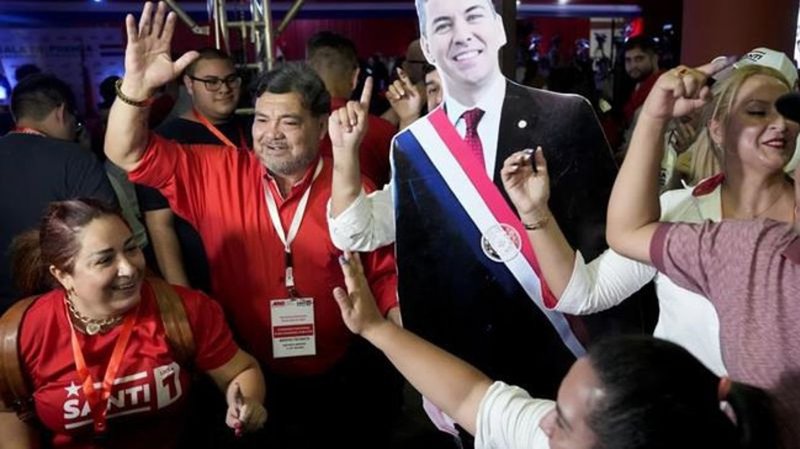
Paraguay’s long-ruling party takes big lead in early returns
ASUNCIÓN, Paraguay (AP) — The long-governing Colorado Party appeared headed to extending its hold on Paraguayan politics as early returns from Sunday’s election gave a substantial lead to its presidential candidate, Santiago Peña.
With almost two-thirds of voting places reporting, Peña had almost 45% of the vote, compared to nearly 28% for Efraín Alegre, the candidate of the Pact for a New Paraguay, a broad-based opposition coalition that hoped to end Colorado’s reign.
Before the vote, analysts said the race looked to be tight because of public discontent and predicted Alegre could have a chance of unseating South America’s longest-governing party, which has essentially ruled Paraguay uninterrupted since 1947.
Paraguay doesn’t have a runoff, so whoever of the 13 candidates received the most votes would be the next president.


